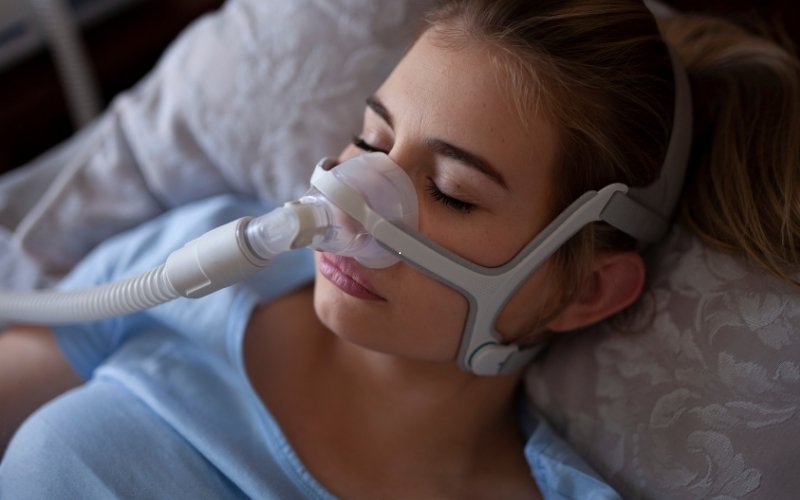Why Dentists Are Key in the Fight Against Sleep Apnea?

Sleep apnea affects approximately 22 million Americans, with nearly 80% undiagnosed. This serious sleep disorder causes breathing interruptions during sleep. There are three main types: obstructive, central, and complex sleep apnea.
Each type disrupts normal sleep patterns, leading to severe health issues. Sleep apnea increases the risk of conditions like high blood pressure, heart disease, and stroke.
This blog emphasizes the vital role dentists play in diagnosing and treating sleep apnea. Dentists possess unique skills and tools to identify the signs of sleep apnea and provide effective treatments. Their involvement can lead to improved patient outcomes and better overall health.
Understanding Sleep Apnea
Sleep apnea is a disorder characterized by repeated interruptions in breathing during sleep. These interruptions can last from a few seconds to minutes and occur multiple times per hour.
Types of Sleep Apnea:
- Obstructive Sleep Apnea (OSA): The most common form, OSA occurs when the muscles in the throat relax excessively, blocking the airway.
- Central Sleep Apnea (CSA): This rarer type results from the brain’s failure to send proper signals to the muscles controlling breathing.
- Complex Sleep Apnea Syndrome: This type combines elements of both obstructive and central sleep apnea.
Symptoms of Sleep Apnea: Common symptoms include loud snoring, choking or gasping during sleep, excessive daytime fatigue, and difficulty concentrating. Many individuals also experience mood swings and memory problems. Recognizing these symptoms is crucial for timely intervention and treatment.
The Impact of Sleep Apnea
Sleep apnea can lead to serious health complications. Individuals with this condition often face an increased risk of high blood pressure, heart disease, diabetes, and stroke. Repeated interruptions in breathing can cause stress on the cardiovascular system, leading to long-term health issues.
Sleep apnea severely impacts daily life. Many people experience extreme daytime fatigue, leading to decreased work productivity and increased risk of accidents. Relationships may suffer due to loud snoring or restless nights, creating tension between partners.
Overall, untreated sleep apnea can drastically reduce the quality of life, affecting physical health, emotional well-being, and personal relationships. Recognizing and treating this disorder is essential to regain a healthy lifestyle.
The Role of Dentists in Sleep Apnea Diagnosis
Dentists play a critical role in the diagnosis of sleep apnea. Their expertise allows them to identify potential signs during routine dental exams.
Early Detection: Dentists look for specific signs, such as enlarged tonsils, a thick neck circumference, or tooth wear due to grinding. These indicators often suggest a higher risk for sleep apnea. By detecting these signs early, dentists can refer patients for further evaluation.
Screening Tools: Dentists often utilize screening tools and questionnaires to assess sleep apnea risk. Tools like the Epworth Sleepiness Scale help determine how likely a patient is to doze off during daily activities. These questionnaires gather essential information about sleep habits, loud snoring, and observed breathing issues during sleep.
By actively participating in the diagnostic process, dentists can facilitate timely intervention. Early detection is crucial for improving patient outcomes.
Dentists also communicate with sleep specialists to ensure patients receive comprehensive care. They may collaborate on treatment plans to provide the best care options available.
Dental Treatments for Sleep Apnea
Dentists offer various treatments for sleep apnea, focusing primarily on oral appliances.
Oral Appliances: Dentists create custom oral appliances to help keep the airway open during sleep. These devices work by repositioning the jaw or tongue to prevent airway blockage. Many patients prefer these appliances over other treatment options due to their comfort and convenience.
Comparison with CPAP: Continuous Positive Airway Pressure (CPAP) machines are commonly used for sleep apnea treatment. However, some patients find them uncomfortable or difficult to use. Oral appliances can provide a more patient-friendly alternative. While CPAP machines are effective, many patients report higher satisfaction with oral devices.
Both treatment options have their benefits. Dentists evaluate each patient’s needs and preferences to determine the best approach. Collaboration with sleep specialists ensures patients receive the most appropriate care for their condition.
Preventative Measures and Lifestyle Changes
Good oral health practices can significantly impact sleep apnea. Regular dental check-ups help identify risk factors early, and dentists can provide personalized advice on maintaining oral hygiene and improving overall health.
Lifestyle Changes: Certain lifestyle modifications can alleviate sleep apnea symptoms. Weight management is crucial, as excess weight can contribute to airway obstruction. Losing even a small amount of weight can lead to significant improvements.
Quitting smoking is another important step. Smoking increases inflammation and fluid retention in the airway, worsening sleep apnea symptoms.
Establishing a consistent sleep schedule and creating a sleep-friendly environment can also help. Avoiding alcohol and sedatives before bedtime can reduce muscle relaxation, which contributes to airway blockage.
By incorporating these changes, individuals can improve their overall health and potentially reduce sleep apnea symptoms.
Dentists are vital in combating sleep apnea through early detection, diagnosis, and effective treatments. Their expertise allows them to identify signs and provide personalized care options.
If you suspect you may have sleep apnea, consult your dentist for a screening. Taking this step can lead to better sleep, improved health, and a higher quality of life. Do not hesitate to seek help and regain control over your sleep and health.




